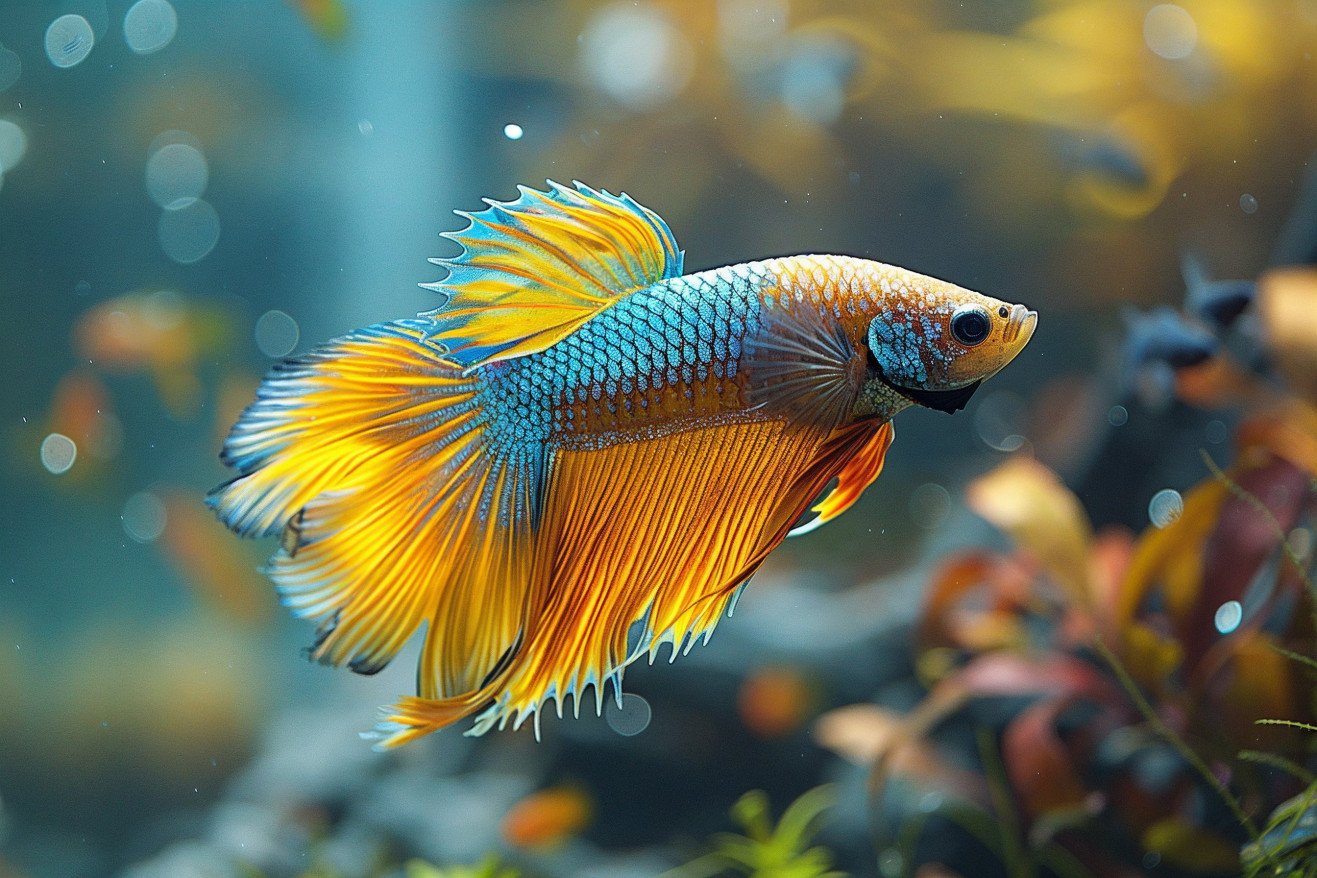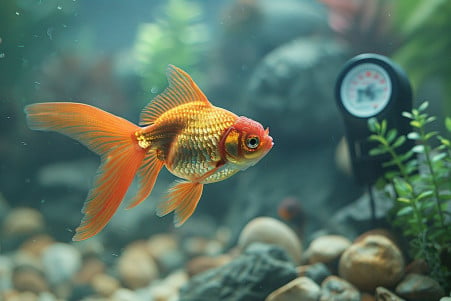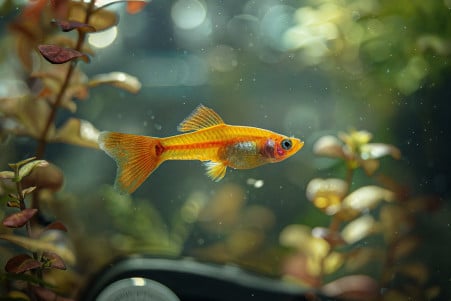Do Bettas Need a Heater? Essential Aquarium Temperature Guide
7 March 2024 • Updated 6 March 2024

Creating the right environment for your betta fish is important, but does that mean you need a heater? Yes, bettas require a water temperature of 76°F to 81°F, and since the average room temperature doesn’t meet this requirement, experts recommend using a submersible heater to ensure that you can maintain the right temperature and reduce stress, which will help you keep your betta fish healthy.
In the sections below, we’ll take a deep dive into the most up-to-date research in the fields of aquatic biology, animal care standards, and expert advice on aquariums to find out exactly what temperature betta fish need and how heaters can help you create a stable, healthy environment for them.
We’ll also look at the impact of temperature on betta fish health and behavior and consider the role of heaters in betta tanks, making sure not to oversimplify the betta fish’s needs.
Do bettas need a heater?
Where Betta Fish Come From and Why They Like Warm Water
Betta fish (also known as Siamese Fighting Fish) are native to the warm, shallow waters of Southeast Asia, where they can be found in a variety of natural habitats, including rice paddies, small streams, and roadside ditches.
The tropical climate of this region means that the water is warm all year long, with temperatures ranging from 76°F to 85°F, according to Aqueon’s Betta Care Guide. This temperature range is not only comfortable but also biologically necessary for bettas, as it supports their unique biology, including a specialized respiratory organ that enables them to breathe from the water’s surface in low-oxygen environments.
The warm waters of their natural habitat have led bettas to prefer a specific temperature range that is necessary for their health. PetMD notes that aquarium water should be kept between 72F and 82F, and emphasizes that this temperature range is important. This is because maintaining the right temperature range is important for supporting healthy biological functions and the active, lively behavior that bettas are known for.
It’s important to maintain these natural conditions in home aquariums. The USGS Water Science School notes that water temperature is one of the most important factors in determining the health and vitality of aquatic life.
As a result, it’s important to keep betta tanks at the right temperature to ensure that the fish are comfortable and that their tanks are an environment that supports their natural behavior and enables them to be as healthy and happy as they would be in the wild.
Why Betta Fish Tanks Need Heaters
Heaters are necessary for maintaining a consistent water temperature in betta fish tanks. Betta fish are tropical fish and require water temperatures between 76°F and 81°F. It is important to maintain this temperature range to keep betta fish healthy and happy.
Submersible heaters are the most effective at maintaining consistent water temperatures and are therefore best for betta tanks. Most submersible heaters also have a thermostat built in, which means they can be set to a specific temperature and will then maintain that temperature.
In addition to keeping the water at the right temperature, heaters also help maintain water quality. Consistent water temperatures help promote the growth of beneficial bacteria, which is important for keeping the tank’s ecosystem healthy.
Heaters are a must-have for betta fish tanks, not an optional accessory. If a tank’s water temperature falls outside of the ideal range, it can cause stress to the fish, which can then lead to a weakened immune system and make the fish more susceptible to diseases.
When choosing a heater for a betta fish tank, it’s important to make sure the heater is the right size for the tank so that it can effectively heat the water. Aquarium Co-Op suggests choosing a heater with a tube that is the same length as the height of the tank.
In addition, choosing a heater with the right wattage for the tank’s size and the room’s temperature will ensure that the heater is powerful enough to do the job. By choosing and using a heater correctly, betta fish owners can make sure their fish are comfortable and healthy.
What Happens if the Water Temperature is Wrong for Betta Fish?
If the water temperature is not right for betta fish, there can be a number of negative effects. According to an article on the website Reptile Knowledge, if the water temperature is too low, bettas can become listless, lose their color, and become more susceptible to diseases like fin rot and ich.
On the other hand, if the water temperature is too high, bettas can become stressed, which can lead to a number of health problems including a decrease in metabolic function and damage to the gills.
In fact, a study in the journal Physiological and Biochemical Zoology found that low water temperatures caused a significant increase in stress in bettas, as indicated by a significant increase in blood glucose levels.
Moreover, a study published on ResearchGate found that water temperatures that were higher or lower than the ideal 28°C led to physiological disturbances in bettas, including blood congestion and gill aneurysms. In addition, higher temperatures led to an increase in the number of abnormal red blood cell shapes, which made these disturbances worse, showing that there are many dangers to temperature fluctuations.
Fish veterinarians and researchers agree that maintaining the right water temperature is important for the well-being of betta fish, as it encourages reproductive behaviors and reduces behavioral abnormalities.
It’s important to slowly adjust the temperature and monitor it closely to avoid shocking the fish and to ensure their well-being. A reliable aquarium heater can help maintain a consistent temperature, which can help avoid these issues and create an environment that supports the health and longevity of a betta fish.
Water Temperature: A Key to Betta Happiness
The way betta fish behave is heavily impacted by the temperature of their water. Not only do betta fish prefer warm water, but they also need it to stay warm to be healthy and act naturally. Back to the Roots’ study found that bettas were more active and interactive with their environment when they were kept in the ideal temperature range of 78–80°F, which is a sign of happiness and health.
According to fish veterinarian Nora Hickey at Washington State University, a happy betta is one that is actively exploring its environment, responding to human interaction, and curious—all things that are the opposite of the sluggishness that comes with being kept in cooler, less ideal temperatures. An aquarium heater provides the constant, gentle heat that helps encourage this happy behavior, making it clear that it’s essential to a betta’s well-being.
In addition to promoting good health, keeping the water at the right temperature also helps bettas in terms of their behavior. When bettas are kept in a properly heated tank, they can act more like themselves, showing off their full range of behaviors and being happy, active pets.
The way a betta’s fins move and the way they look at you when you approach their tank are clear signs that they’re comfortable and thriving.
As a result, keeping the water temperature consistent and within the right range helps bettas in ways that go beyond just keeping them alive and healthy. It also helps them be the pets they’re meant to be.
As we think about the many ways to make sure our betta’s environment is just right, it’s clear that the temperature of the water is a big part of making sure they’re happy overall.
Keeping the Temperature Just Right in Your Betta’s Tank
Getting and keeping your betta’s tank at the right temperature is easier than you might imagine. It all starts with choosing the right kind of heater.
According to First Tank Guide, submersible heaters are the most popular because they heat the water more evenly, and ONEdersave also recommends them because they are easy to use and come with safety features. ONEdersave also points out that submersible heaters are especially good at heating the water near the bottom of the tank, which is important for keeping the temperature consistent.
Of course, you’ll also need to keep an eye on the temperature. Make sure to get a good quality aquarium thermometer and check the water temperature daily.
When you’re buying a heater, make sure to take into account the size of your tank and the average room temperature. According to First Tank Guide, the heater you buy should be rated to heat the volume of water in your tank to the temperature you want to maintain.
If you want to keep the temperature steady and keep your heating bills down, Planted Tank Forum recommends insulating your tank, which is especially important if you live in a cold climate or it’s the winter.
This is especially important if you live in a cold climate or it’s the winter. You’ll also need to keep up with regular maintenance to make sure your heater continues to work well.
That means checking for signs of wear, making sure it’s still working, and cleaning off any dirt and grime that’s built up on the outside. If you follow these steps, your betta will be sure to have a nice, warm home that’s perfect for their health and well-being.
Betta Fish Care: An Overview
By bringing a little piece of Southeast Asia into our homes, heaters are crucial to the care of betta fish. It’s important to make sure that the water stays between 76°F and 81°F, the temperature range that betta fish have adapted to in their tropical environment.
From helping to bring out their best colors and energy, as the Aqueon Betta Care Guide notes, to keeping them healthy, the importance of heaters in a betta’s tank cannot be overstated.
As we’ve seen throughout this article, stable water temperatures are not only important for overall health but also for encouraging the playful and charming behaviors that bettas are known for. The team at Aquatic Veterinary Services emphasizes that temperature has a direct impact on the physiological and behavioral well-being of bettas, further driving home the point that it’s important to be a responsible pet owner.
As the caretakers of these beautiful fish, it’s our job to make sure that they are in the best possible situation to thrive, and that means making sure that they have the right temperature in their tanks. Heaters are not just an optional piece of equipment when it comes to betta fish care.
Let’s make sure that we are being responsible pet owners and that we are providing the best possible environment for our bettas, a small but impactful way that we can show that we care about their well-being.


